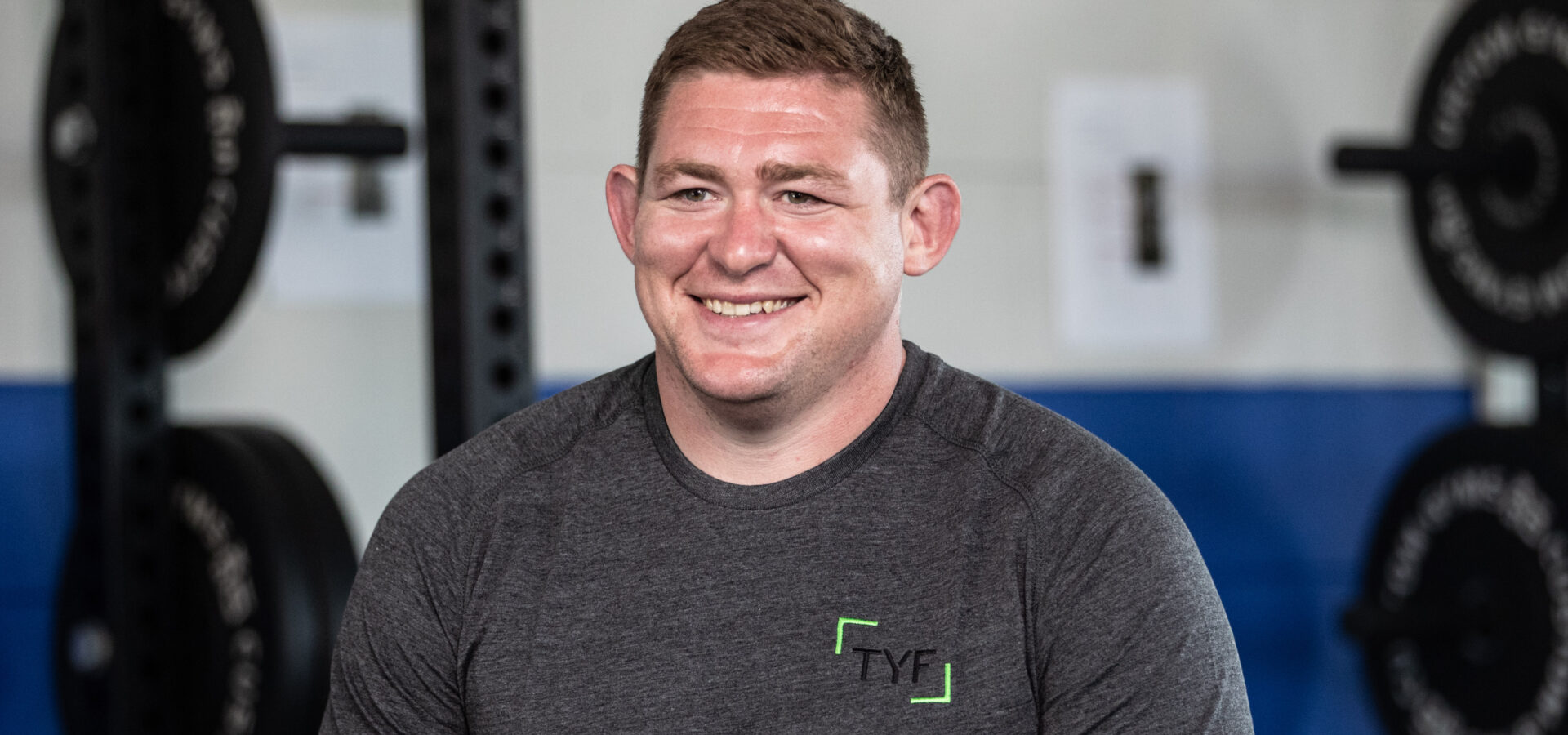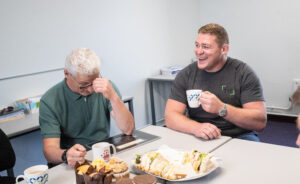News
Don’t Get in Your Own Way

As Tadhg Furlong pulled up at his old stomping ground to link up with Tackle Your Feelings Schools, he couldn’t help but draw comparison with one of last times he was on the avenue at Good Counsel in New Ross.
“You’d have the boy racers in their Starlets and jumped up Golfs,” he begins. “There were the Cinquecentos and then you had the rich families with the real nice cars too. Anyways, we were all bombing it around the place one day including David Flynn and his Honda Civic.
“Now David fancied himself in his cars and so when we had a chance, we put his car up on blocks and took the wheels off. Well, the boys got to the top of the avenue and they threw those wheels… I reckon they’re still going.”
“I was looking from a distance of course,” Furlong clarifies, “directing the traffic, shall I say.”
Notwithstanding his impish grin, imagining Furlong as a passive observer is a hard sell. It even proved challenging to find isolated shots of the prop without a melee enveloping him to accompany this article. The man is all-action. It’s hard to think that the school corridor was any different.

Mandatory Credit ©INPHO/Dan Sheridan
Having made his Leinster Rugby debut back in November 2013, Furlong has been at the coalface of the game’s physicality for over a decade. Yet despite his vast experience, he still carries the weight of the world on his shoulders from time to time.
“I still worry about playing well on the big stage,” the Irish stalwart admits. “I’ve found that if I’m ever feeling boxed in, talking to my teammates makes a massive difference. I just get it out there.
“Back in the day people used to think that if you weren’t sick to the stomach with nerves before a game, you wouldn’t play well. You’d almost be proud of the lads heading to the toilets for a puke.
“Nowadays, the mental approach has all changed. There’s an understanding that to show the best version of yourself out on the field, you have to be free and confident off it.”
While Furlong is keenly aware of the privileges that elite rugby players enjoy, in speaking to the students at New Ross he emphasised that while rugby players are often portrayed as infallible beings, they face many of the same stresses, strains and difficulties that accompany any profession.
He’s not looking for any sympathy, mind. He appreciates it’s a handsomely remunerated job which a player ultimately chooses to pursue, thus placing themselves on a platform from which people will judge, scrutinise and criticise their actions. However, that does not trivialise the issue of mental health in rugby in comparison with any other sector of society.

Mandatory Credit ©INPHO/Ben Brady
“Everyone thinks rugby players have a grand rosy life,” Furlong says. “They all think we play rugby on a Saturday and swan around drinking coffee for the rest of the week. It’s not like that. People deal with injuries, people deal with selection, people deal with stuff going on outside of rugby.
“You can get up in your head about all sorts of things. In rugby we do a lot of work to clear your head or ‘not get in your own way,’ as we call it, so you can put your best foot forward at the weekend or help the other lads prepare if you’re not going to be involved.
“I think schools and other professions could really benefit from some of the tools we’re using.”
For Furlong, the first challenge lies in creating environments where students, employees or players are comfortable in sharing or discussing their feelings. This was borne out of his time in Good Counsel where good relationships with his teachers empowered him to overcome some of the challenges of school life.

“If you look at the young players always coming through at Leinster,” Furlong begins, “they have the most to learn and so they need to feel as comfortable as a senior player in terms of asking questions and picking other players’ brains. We’ve all been in their shoes.
“It’s the same with kids at school. They’ll question themselves on their first day. They’ll question themselves before exams. They’ll question themselves going into social situations. I think the biggest thing is not letting those questions get on top of you.
“Ideally, you develop the skills to identify how you’re feeling and at that point it’s a good time to get whatever it is off your chest whether it’s to a teacher, to a coach or to a colleague in the office. You will find someone.
“As the saying goes, ‘a problem shared is a problem halved.’”
Furlong has long been typecast as a typical non-nonsense front-row forward – one you’d assume would have little patience for any game preparation beyond a deep squat in the gym. However, as the game has developed, Furlong recognises the need to keep up. New exercises and techniques have slipped into his routine, along with a heightened awareness of what suits him best.
“When I’m alone after a tough loss,” he says, “I end up filling the empty space in my head with my own thoughts. I think about the mistakes. I think about the other team celebrating. I get too deep into it.
“People feel weighed down by all sorts of things in life. Like sport, every day is not going to be a great day but there’s no need to panic. Stick to what you know, trust the groundwork you’ve laid, and you’ll regain control.”

Mandatory Credit ©INPHO/Ben Brady
Having lined out in European Cup Finals, Rugby World Cups and Lions tours in recent seasons, you’d think Furlong’s life has been entirely consumed by his sport. Yet despite his formidable reputation on the field, he defies the stereotype by valuing more than just the sport by embracing the broader spectrum of athlete wellbeing.
“I’ll put it this way,” he says, “if a fella walked into the dressing room ten years ago and said ‘hey lads, I’m going to do a meditation,’ he’d have been laughed out of the building. These days, mindfulness, sleep and recovery are just as important as the physical stuff.
“I’m not the best sleeper but I understand that about myself. Sometimes as soon as I put my head on the pillow, the hamster gets on the treadmill and starts running. The head can run amuck over silly stuff. I’ve learned to catch myself when that happens.
“Having an ability to switch off is as important as any preparation for a game. I watch very little TV but I love YouTube. I go down a rabbit hole with all the weird and wonderful stuff that’s on there. I could tell you a little bit about a lot of things.
“I like to see a bit of grass too,” Furlong adds, with a nod to the window. “The countryside helps me to chill out. Wexford, well it’s a great part of the world. The beaches, the fabulous food.
“We’re in real Wexford here,” he continues. “We’re in the deep south where it’s nice and pure. The north of the county would get a lot of passing commuter traffic but down here is a real escape. I bet a lot of the Dubs don’t even realise it’s in Leinster.
“We’ll keep it that way.”
Back to News
Latest Posts

Inaugural Past Players Padel Tournament

The Ireland Sports Fund

Making Tracks
















